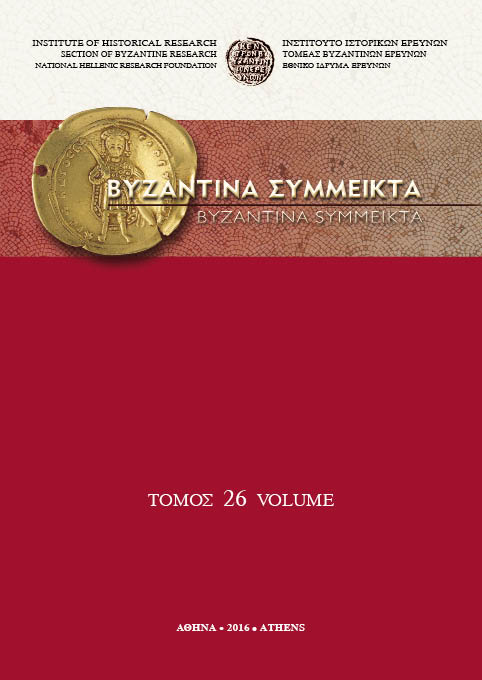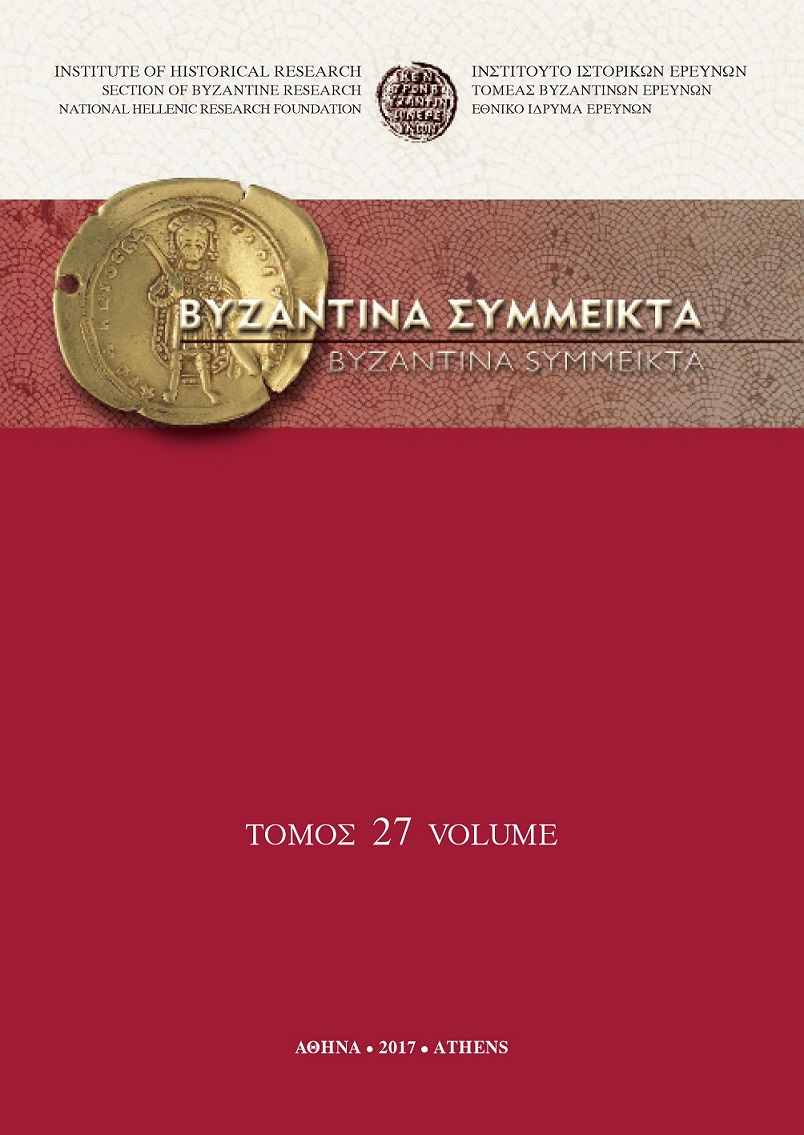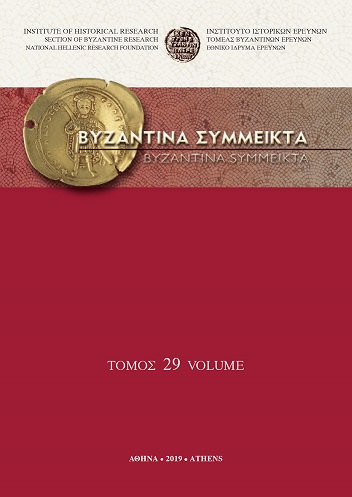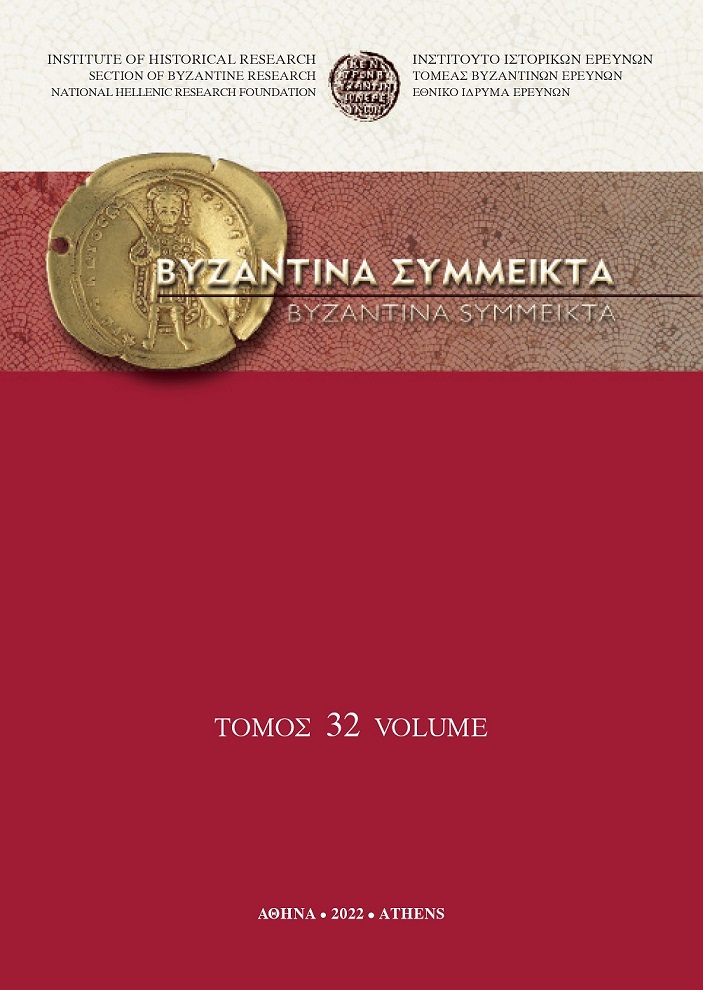Κωμική Λογοτεχνία και γέλιο τον 12ο αι. Η περίπτωση του Κωνσταντίνου Μανασσή
Περίληψη
Comic Literature and laughter in 12th century:
The case of Constantine Manasses
SUMMARY
The intriguing literary production of the 12th century comprises among others satires, parodies and works that include comic elements. This is due to several reasons, such as the cultural continuum of the past two centuries, the vivid interest of the literati in Aristophanes and Lucian, and the social placing of authors within the highly competitive society of the era. Within this framework, learned men of the Capital often turn to the genres (Lucianic dialogues, ψόγοι and the techniques (offensive language, literary metaphors) of the ancient comic literature and the rhetoric, in order to attack, mock or degrade certain individuals (rival grammarians, oppressive patrons) or specific groups that represent the “Other” (rustics, “Latins”). Occasionally, the reaction of laughter escorts the intention of the authors to ridicule their targets.
The present study takes into consideration the abovementioned frame and focuses on the comic elements that are to be traced in the work of orator and poet Constantine Manasses. Essentially, Manasses’ employ of the comic doesn’t deviate from the general practice of his contemporaries, as the author displays the same sense of superiority against other learned men, while showcasing a sentiment of aversion to people outside the capital. However, his attitude is considerably softer in comparison to other authors of this period, whereas his works are surprisingly devoid of any direct attack against learned competitors. In addition, laughter in Manasses, when it occurs, adds a lighthearted tone and doesn’t seem to conceal an intention for rebuke or stinging criticism. The possible reasons for Manasses’ stand are explored in this paper.
Λεπτομέρειες άρθρου
- Πώς να δημιουργήσετε Αναφορές
-
ΧΡΥΣΟΓΕΛΟΣ Κ. (2016). Κωμική Λογοτεχνία και γέλιο τον 12ο αι. Η περίπτωση του Κωνσταντίνου Μανασσή. Βυζαντινά Σύμμεικτα, 26(2), 141–161. https://doi.org/10.12681/byzsym.8602
- Τεύχος
- ΒΥΖΑΝΤΙΝΑ ΣΥΜΜΕΙΚΤΑ 26
- Ενότητα
- Άρθρα

Αυτή η εργασία είναι αδειοδοτημένη υπό το CC Αναφορά Δημιουργού – Μη Εμπορική Χρήση – Παρόμοια Διανομή 4.0.
Οι συγγραφείς των άρθρων που δημοσιεύονται στα ΒΥΖΑΝΤΙΝΑ ΣΥΜΜΕΙΚΤΑ διατηρούν τα δικαιώματα πνευματικής ιδιοκτησίας επί των άρθρων τους, δίνοντας στο περιοδικό το δικαίωμα της πρώτης δημοσίευσης. Άρθρα που δημοσιεύονται στα ΒΥΖΑΝΤΙΝΑ ΣΥΜΜΕΙΚΤΑ μπορούν να χρησιμοποιούνται ελεύθερα, χωρίς δικαίωμα τροποποίησης (δημιουργία παράγωγου έργου) με αναφορά στο συγγραφέα και στην πρώτη δημοσίευση για μη κερδοσκοπικούς σκοπούς(άδεια Creative Commons 4.0). To Εθνικό Ίδρυμα Ερευνών διατηρεί το δικαίωμα να δημοσιεύει, να αναπαραγάγει, να παρουσιάζει στο κοινό, να διανέμει και χρησιμοποιεί άρθρα που δημοσιεύονται στα ΒΥΖΑΝΤΙΝΑ ΣΥΜΜΕΙΚΤΑ σε οποιοδήποτε μέσο και μορφή είτε μεμονωμένα είτε ως μέρη συλλογικών έργων, για όλο το χρόνο διάρκειας προστασίας της πνευματικής ιδιοκτησίας και για όλες τις χώρες του κόσμου. Αυτό περιλαμβάνει ενδεικτικά και όχι αποκλειστικά, το δικαίωμα δημοσίευσης των άρθρων σε τεύχη του περιοδικού ΒΥΖΑΝΤΙΝΑ ΣΥΜΜΕΙΚΤΑ, αναπαραγωγής και διανομής μεμονωμένων αντιγράφων των άρθρων, αναπαραγωγής ολόκληρων των άρθρων σε άλλη έκδοση του ΕΙΕ, και αναπαραγωγής και διανομής των άρθρων ή περίληψης αυτών με χρήση πληροφορικού συστήματος αποθετηρίου.







